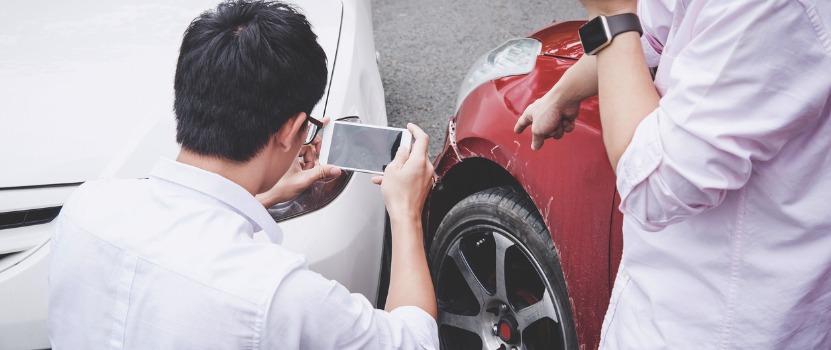Songs are written about them (Queen’s I’m In Love With My Car).
TV shows center their plots and themes around them (TV’s current hits – Top Gear, Counting Cars; and timeless classics – Knight Rider, Herbie The Love Bug, from the ‘80s and My Mother the Car from the 60s).
And then there are movies – too many to mention here. The bottom line is we DO love our cars!
Let’s face it… America is a car culture. Cars are here to stay and that’s a good thing. But, as is always the case, some bad comes along with the good. In this case, car accidents are the downside. As we spend more time and do more in our cars that we should (drinking, texting, eating, applying makeup, etc.), accidents will surely increase.
Currently there are tens of thousands of automobile accidents annually in Florida. These accidents take only seconds to happen. But beware, the effects of what takes only seconds can last a lifetime.
Accidents will happen. But using good common sense and everyday caution can dramatically decrease the odds of having a car accident. Remember, if you aren’t driving safely, you can be considered partly (or entirely) at fault in an accident. Safety tips that you should always follow that make a difference are:
- Wear seat belts and use child safety seats
- Never drink and drive
- Never text while driving
- Keep your car in tip-top working order
What is comparative negligence?
If you fail to drive safely and are involved in a car accident, your personal injury claim could be dramatically affected due to comparative negligence. Comparative negligence means that if the accident was even only partially your fault and you could have done something to prevent the injuries, you will not be able to recover the full amount of money. Actually the payment will most likely be reduced proportionately based on your percentage of faulty.
Comparative Negligence Examples
Examples of comparative negligence are:
Failure to use seat belts. Florida law mandates that you use seat belts at all times. The only exception to this is if you have medical recommendations that you do not use a seat belt. This is common if you have recently had a pace-maker and have been advised not to use the shoulder portion of your seat belt. Be forewarned though, you will need an actual prescription that you must have with you at all times when in a car.
Failure to use a child safety seat. No matter if you are simply going around the block, your child must be properly secured. Should you have an accident and your child is injured, you will be found at fault. Unsure how to properly install a car seat? Stop by any fire station as the firefighters are trained on how to install, check and tighten car safety seats – for free!
Bad driving, including speeding and sudden stops. If your driving has contributed to the accident in any way, you will be deemed comparatively negligent. Common examples of this are making sudden stops causing the car behind you to rear-end you. Another example is speeding and then braking for no reason that results in being rear-ended. Lesser examples of bad driving include the failure to use turn signals or headlights, improper U-turns and failing to maintain your car’s brakes or tires.
It’s undeniable that cars have changed our lives and offer us the freedom to go wherever we want, whenever we want. Treat your car like a valued member of your family – keep it in good health (i.e. good working order) and drive it safely by following the rules of the road. Make 2014 a safe year for you and your family!
Call Carey Leisure Carney for Legal Services in Clearwater, FL
Contact us at (727) 799-3900 for a free no-obligation consultation and case evaluation.
